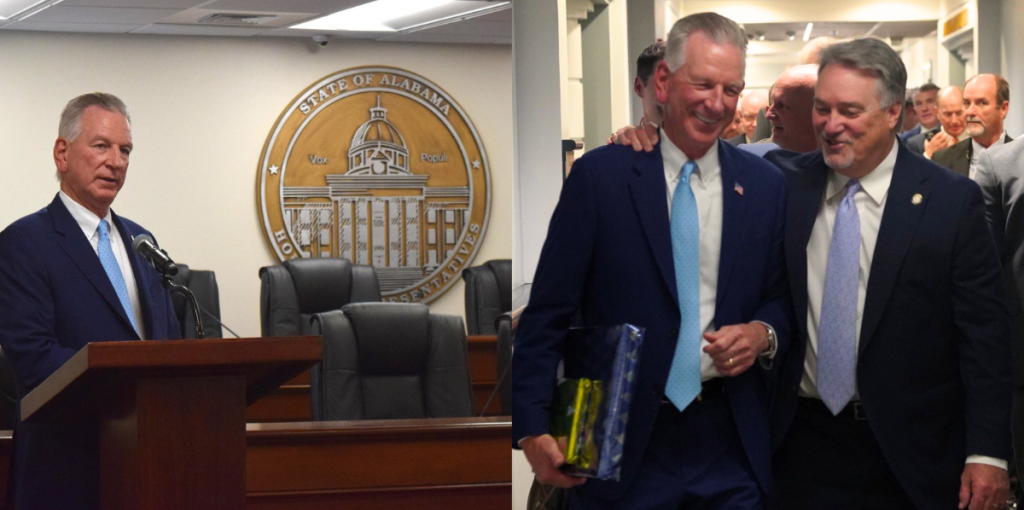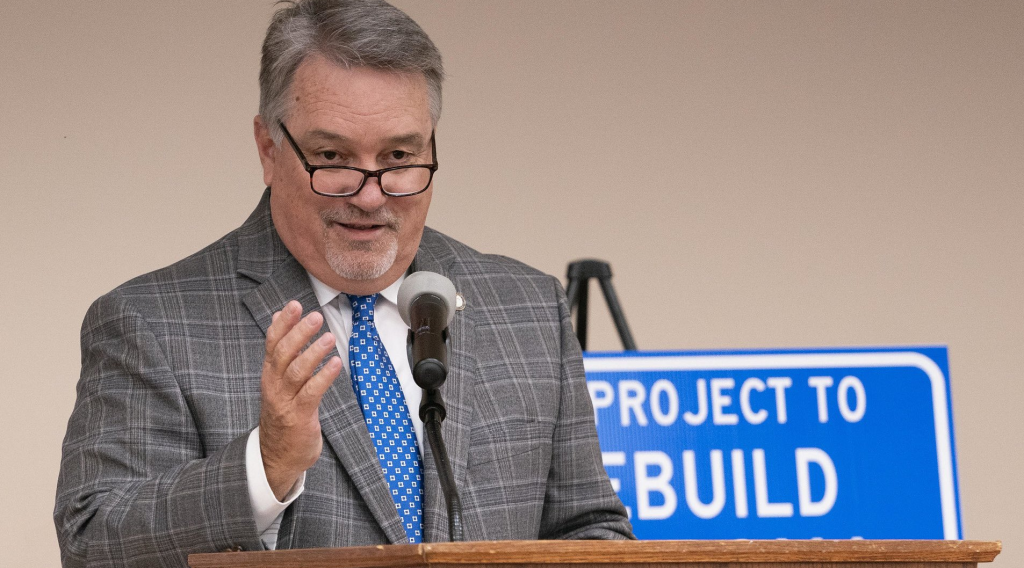Just about a month into the 2023 legislative session, Senate President Pro Tem Greg Reed and Speaker of the House Nathaniel Ledbetter gave a review of the work done and a preview of the work to be done in the annual legislative review hosted by Yellowhammer News.
In Thursday’s event, they provided insight into the major decisions to come, namely, renewing incentives, passing both budgets, and delivering on taxpayer relief options.
‘Historic’ surplus
Both leaders are now able to offer a high-level perspective of the Legislature at this point in their tenures, which has seen state financial positions ranging from proration to surplus. Reed is entering his second term as Senate president; he was first elected senator in 2010.
“Alabama is in the position that we’re in, as maybe the best fiscal condition that our state has been in a long, long time, maybe ever,” Reed said. “We’ve paid back to ourselves a billion dollars. We filled up every rainy day fund. We fully funded the rolling reserves. We paid off bonds that we could pay off. We’ve done everything we could think of to try and be as fiscally responsible as we can.”
“Making sure we remember where we come from has a huge impact on the decisions of where we’re going.”
Ledbetter, entering his first term as Speaker, agreed. “He and I both were here when times were lean and what we have to remember is that wasn’t that long ago.
“I think it goes back to the legislative body, that’s what we talked about, the 140 members have done a good job and been conservative in their budgeting, and caused us to have a surplus on top of what the federal government put in through the ARPA funds.
“I’m excited that we are where we’re at so we’ve got to be mindful.”
The Game Plan
The four components of a landmark incentives renewal and enhancement package, known as Gov. Kay Ivey’s “Game Plan” for economic success, were introduced this week. Both leaders shared their commitment to finishing a process that’s been long in the making.
“The results speak for themselves,” Reed said. “Billions and billions of dollars of investment in the state of Alabama, tens of thousands of jobs, high paying jobs.
“Who would’ve ever thought about the idea that in years past that Alabama would be promoting herself as the No. 3 automaker in America, the No. 4 aircraft manufacturer in the world, fourth or fifth largest shipbuilder on the planet. These are significant accomplishments. And I think these incentives have done a lot to help us get there.”
Ledbetter underscored the competition Alabama faces from other states in terms of site development and said the package is an opportunity to break through.
“The SEEDS (Site Evaluation and Economic Development Strategy) Act, which is one of the things that’s going to be important to us — Virginia, Tennessee has invested, each one of them, has invested almost $100 million to buy property — because of the success Alabama has had with these programs,” he said.
“I’m glad that’s part of the package. We’ll have them in committee soon and hopefully next week we’ll see a big success.”
Reed said Innovate Alabama, a central aspect of the Innovation and Small Business Act, will be able to supercharge its capabilities by transforming startups into big businesses that “hopefully employ thousands of Alabamians.”
“We’re taking some things from commerce, like accelerators, and some startup business options and support mechanisms, and moving that over to Innovate Alabama, which is right in the wheelhouse of what that public-private partnership innovative Alabama is supposed to be doing.”
In terms of the legislative process next week, each leader said he anticipates a swift and collaborative passage. All four bills have both Senate and House iterations, allowing both chambers to deliberate simultaneously.
“The one thing that I think is very important that we recognize is that the process of all the work that’s gone into creating this four bill package of the incentives is very important,” Reed said. “We want to have all of the Legislature to have the opportunity to engage in this legislation.
“It’s a big deal. They need to be looking at it, reading it, coming up with thoughts, ideas, things they think that have worked in their local communities.”
Tax relief: Rebates vs. cuts
When it comes to the surplus in the Education Trust Fund budget, Ivey has proposed direct tax relief of $800 to working families in the form of a one-time rebate, now reflected in pending legislation.
At the same time, Lt. Gov. Will Ainsworth has seemingly generated the most momentum in recent history for a full repeal of Alabama’s grocery tax — a longstanding preference of some in the Legislature.
“I think there’s a chance that there could be both,” Ledbetter said when asked about the potentially mutually exclusive nature of relief. “I don’t know that will happen. The talk is pretty immature right now. It will mature as we go forward.”
“But at the end of the day, what we’ve got to make sure of is that we take care of the people of our state. At the same time, we’ve got to remember we’ve got to be good stewards of the taxpayers’ money.”
The Alabama Constitution specifies each regular session is limited to 30 legislative days; next Tuesday will be the eighth day of this session.
Grayson Everett is a staff writer for Yellowhammer News. Follow him on Twitter @Grayson270 for coverage of the 2023 Legislative Session.













